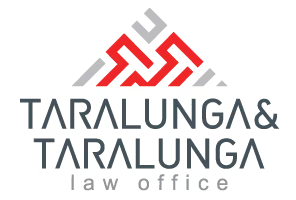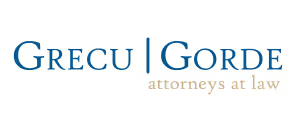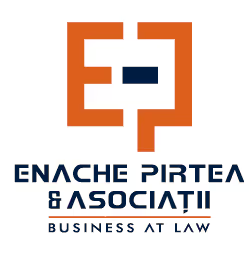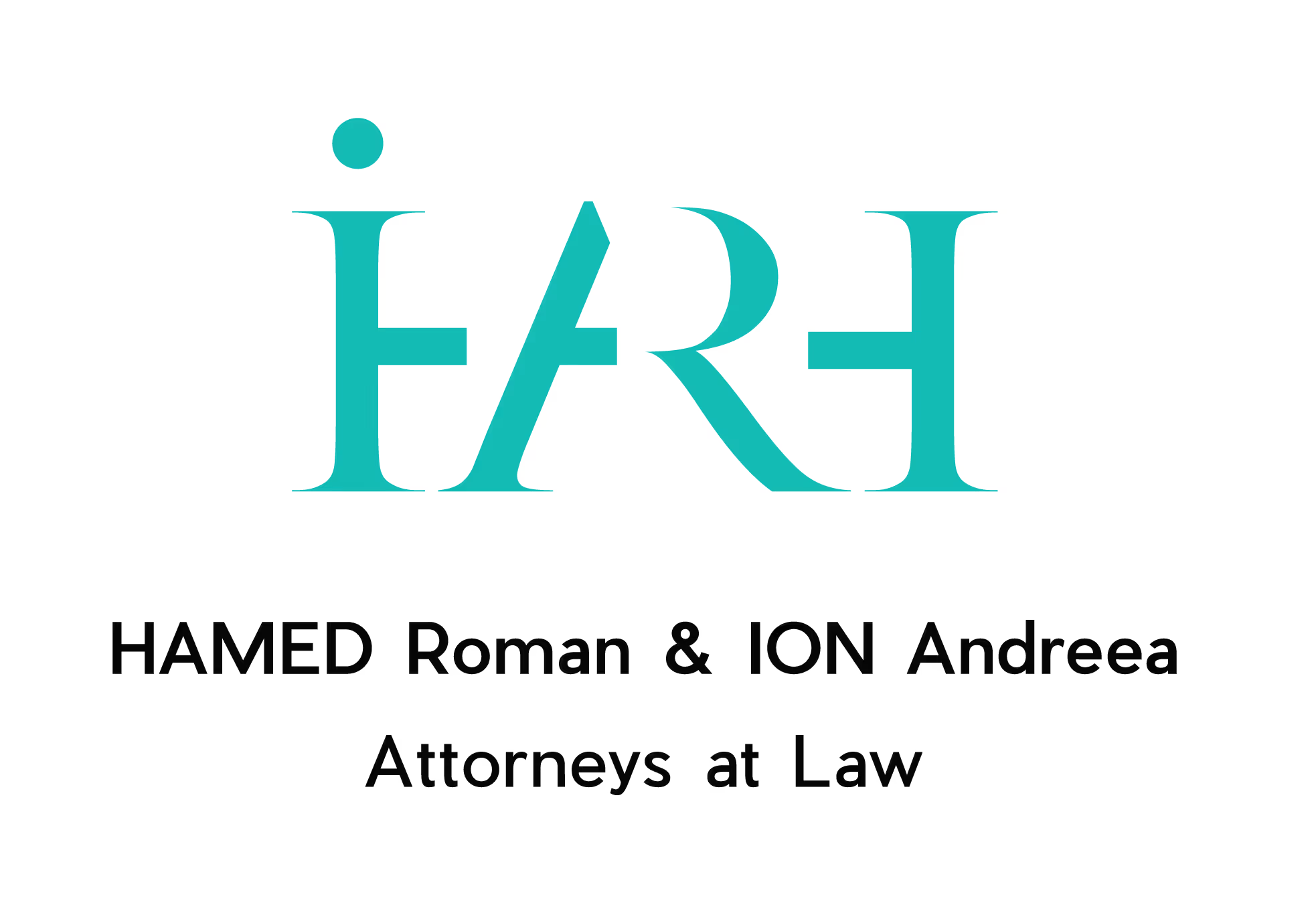Top-Rated Debt Collection Agency in Romania
Your trusted Debt Collection Agency Romania offers swift and reliable recovery without upfront fees. Turn to our complete guide for comprehensive insight on local collection practices.






The ultimate guide about debt collection in Romania
Why you can trust this guide
At Debitura, we uphold the highest standards of impartiality and precision to bring you comprehensive guides on international debt collection. Our editorial team boasts over a decade of specialized experience in this domain.
Questions or feedback? Email us at contact@debitura.com — we update this guide based on your input.
Debitura By the Numbers:
- 10+ years focused on international debt collection
- 100+ local attorneys in our partner network
- $100M+ recovered for clients in the last 18 months
- 4.9/5 average rating from 621 reviews
Expert-led, locally validated
Written by Robin Tam (16 years in global B2B debt recovery). Every page is reviewed by top local attorneys to ensure legal accuracy and practical steps you can use.
Contributing local experts:
Last updated:
Whether dealing with domestic or international late payments, unravelling the intricacies of debt collection in Romania can appear intimidating. This guide confidently bridges local expertise and global experience, simplifying your debt recovery journey with Debitura, your ultimate partner in Romania.
Unveiling the Main Actors in Romania's Debt Recovery Landscape
Navigating Romania's debt recovery realm requires a grasp of the key players and their unique roles. This includes collection agencies, bailiffs, and legal professionals who collectively work within Romania's rigorous legal boundaries to retrieve debts.
Debt Collection Agencies in Romania
Debt collection agencies in Romania play a pivotal role as intermediaries between creditors and debtors, aiding in the recovery of overdue debts. Their involvement typically begins when amicable efforts to collect directly from the debtor have been exhausted and an expert touch is needed. These agencies undertake various tasks such as conducting negotiations, and sending out reminders and formal notices to debtors. Romanian regulations craft a specific framework within which these agencies operate, ensuring practices are fair and professional under the umbrella of consumer protection laws. However, their actions are not boundless; for instance, they're not permitted to harass or mislead debtors, reflecting a balanced approach to debt recovery. Leveraging a collection agency can significantly increase the chances of recovering debts efficiently, with adherence to local laws and regulations.
Debt Collection Lawyers in Romania
In Romania, debt collection lawyers play a pivotal role, bridging the gap between creditors and debtors when amicable collection efforts fall through. These legal professionals are specialized in navigating the complexities of recovering owed money, advocating for creditors in legal proceedings, and ensuring that the debt recovery process is both fair and in accordance with Romanian law.
Engaging a lawyer becomes essential when friendly reminders and direct negotiations fail to prompt payment from the debtor. At this stage, lawyers step in to formalize the collection efforts through legal notices and, if necessary, initiate court proceedings. Their tasks range from drafting and sending demand letters, negotiating payment plans, to representing creditors in court. Moreover, they assist in enforcing court judgments, ensuring that the creditor's rights are upheld throughout the process.
The operation of debt collection lawyers in Romania is tightly regulated, adhering to the national civil laws and specific debt collection regulations. They must hold a valid practicing certificate, ensuring their compliance with professional and ethical standards. However, there are tasks that fall outside the purview of debt collection lawyers, such as conducting initial debt verification and amicable collection attempts, typically undertaken by the creditors themselves or debt collection agencies.
Before engaging a lawyer, creditors should exhaust all amicable collection routes. This includes clear communication attempts and possible negotiation of payment terms directly with the debtor. Only when these efforts fail should a creditor consider the legal route, tapping into the expertise of a debt collection lawyer to navigate the complex, yet necessary, legal landscape of debt recovery in Romania.
The Role of Bailiffs in Romania
In Romania, bailiffs play a crucial role in the debt collection process. Officially known as judicial executors, bailiffs are professional officers who are empowered to enforce court decisions—including the collection of debts. Their primary mandate is to ensure that the rights granted by a court decision or any other enforceable title are realized effectively and lawfully.
Bailiffs are typically called upon when a creditor possesses a definitive court decision or enforceable document indicating that the debtor has not voluntarily met their obligations. The tasks performed by bailiffs in Romania involve a wide range of activities, from notifying and communicating with debtors to executing direct and indirect enforcement measures—such as garnishments and seizures—on a debtor's assets.
The activity of bailiffs is regulated by the civil procedure code (Codul de procedură civilă), ensuring a structured and legally compliant process. Their role is, however, limited by certain legal protections that safeguard the debtor's essential living needs, stipulating that certain assets and incomes are exempt from execution. Creditors looking to involve a bailiff must first explore amicable settlement options; only after these efforts prove unsuccessful should they proceed to obtain an enforceable title for judicial execution.
Engaging a bailiff is a significant step in the debt recovery process, carefully regulated to strike a balance between enforcing creditor rights and protecting debtor welfare.
Source: European e-Justice Portal - Enforcement of Court Decisions in Romania
Romanian Debt Collection: An Overview of the Legislation
Navigating debt recovery in Romania mandates a deep comprehension of its intricate legal system. Abiding by these regulations brings duality: an efficient recovery process and adherence to procedural fairness—key to fostering a reliable and honorable business environment.
The Civil Court System in Romania
Romania's civil court system is structured to ensure a fair judicial process, handling civil cases, including debt collection disputes. Here's an overview of the hierarchy of courts:
- Local Courts (Judecătorii) - Handle cases with lower value claims and initial jurisdiction over certain lawsuits and petitions.
- Tribunals (Tribunale) - Serve as the first instance for more significant cases not assigned to local courts and as appellate courts for local court decisions.
- Appellate Courts (Curți de Apel) - Deal with appeals against Tribunal decisions to ensure correct and uniform application of the law.
- High Court of Cassation and Justice (Înalta Curte de Casație și Justiție) - The supreme court in Romania, overseeing the correct and uniform interpretation and application of the law by other courts.
In addition to understanding the court hierarchy, it's essential for international creditors to familiarize themselves with specific procedural norms and local practices in Romania. Successful navigation through the Romanian judicial system for debt collection often requires a pragmatic approach, where expertise in local law and customs plays a crucial role. Consequently, partnering with a well-versed legal team or agency, like Debitura, can significantly enhance the efficiency and outcomes of debt collection efforts in Romania.
Key Debt Collection Laws and Legislation in Romania
Romania's legal framework for debt collection is multifaceted, designed to balance the interests of creditors and debtors while safeguarding against abuses.
- Civil Procedure Code (Codul de Procedură Civilă): Regulates the enforcement of debt through judicial means, outlining the process for obtaining and executing court judgments.
- Consumer Protection Legislation: Offers protections against unfair debt collection practices, ensuring that debtors are treated with dignity and respect.
- Data Protection Laws (Legea privind Protecția Datelor): Governs the handling of personal data by debt collection agencies to prevent abuse and protect debtor privacy.
- Bankruptcy Law (Legea privind Procedura Insolvenței): Detailed regulations for handling the debts of insolvent companies, including the prioritization of claims and the role of creditors.
- EU Directive 2021/2167 on Credit Services and Credit Purchases: While specific to non-performing loans, this directive influences how debt collection activities are conducted, emphasizing fairness and transparency.
- Licensing and Regulatory Framework for Debt Collection Agencies: Requirements set forth by the National Authority for Consumer Protection, mandating authorization and supervision to ensure compliance with legal standards.
Underpinning these legal instruments, Romania's approach to debt collection emphasizes a balance between efficient debt recovery and the protection of debtor rights. Agencies operating in this domain must navigate a complex landscape of regulations, ensuring compliance not only with Romanian laws but also with relevant EU directives. The recent inclusion of EU Directive 2021/2167 highlights a continued focus on enhancing debtor protections, mandating clarity, fairness, and professional conduct in all debt collection activities. It's crucial for any party engaged in or affected by debt collection in Romania to be aware of these legal requirements to ensure compliance and uphold ethical standards.
Consumer Protection and Fair Debt Collection Practices in Romania
In Romania, consumer protection in the realm of debt collection is significantly bolstered by both national legislation and European directives, ensuring fair treatment and safeguard against undue pressures.
- Consumers are shielded from abusive debt collection practices under the European Union Directive 2021/2167, transposed into Romanian law, mandating ethical behavior from creditors.
- Debt collection entities operating in Romania must secure authorization from the National Authority for Consumer Protection (ANPC), ensuring legitimacy.
- Before resorting to forced collections, creditors are obliged to explore reasonable debt restructuring options in accommodation of the debtor's financial hardships.
- Consumers aggrieved by potential violations of their rights by debt collectors have the option to seek redress through the ANPC, which oversees compliance with the law.
- The emphasis on fair practices aims to minimize the negative impacts of debt collection on consumers' credit scores and overall financial health.
- Recent legislative adaptations, including the integration of the EU Directive 2021/2167, underscore Romania's commitment to enhancing consumer protection in debt collection processes.
Overall, Romania is at the forefront of fostering a regulatory environment that balances the interests of creditors and consumers. The introduction of statutes such as the EU Directive 2021/2167 into Romanian law not only harmonizes the country's practices with those across the European Union but also fortifies consumers against malpractices, ensuring their rights and dignity are upheld in the debt collection process.
Navigating Amicable Debt Collection in Romania
In Romania, effective debt management often begins with amicable collection, a pre-legal process intending to resolve debts sans court involvement. Typically faster and simpler than legal proceedings, it's usually carried out by external agencies. We explore key steps, strategies, and considerations in this realm.
- Initial Communication: Begins with telephone requests for payment, establishing initial contact for repayment arrangements.
- Multi-Channel Communication: Utilizes phone, text, emails, and letters to ensure comprehensive outreach to debtors.
- Professional Involvement: Involves credit management professionals, emphasizing the serious intent to recover debts legally.
- Legal Escalation: Transition to legal proceedings is an option if amicable collection efforts are unsuccessful.
- Debt Collection Services: Specialized services offer efficiency, cost reduction, and access to expert networks.
- Insolvency Law: Law on Personal Bankruptcy provides a formal process for individuals to eliminate debts under financial strain.
- Interest Rates: Legislation sets interest rates based on the National Bank of Romania's reference rate for late payments.
- Demand Letter: Payment notifications stress the matter's seriousness and the creditor's intent to pursue legal avenues.
- Invoice Payment Terms: Standard payment term is 30 days, allowing penalties for late payment per Romanian law.
- Statute of Limitations: Three-year limit to initiate debt collection actions, with specifics varying by debt type.
Guiding Principles of Amicable Debt Collection in Romania
Amicable debt collection adopts a strategy centered on preserving relationships during the debt recovery process, focusing on understanding and dialogue rather than conflict. This approach seeks to foster a constructive relationship between the creditor and debtor, aiming for resolutions that are considerate of the debtor's circumstances while securing the creditor's need to reclaim funds. It's an approach best suited for straightforward claims that do not involve legal disputes, sidestepping the expenses and intricacies associated with court proceedings.
We advocate for initiating the debt recovery process with amicable measures unless faced with contested claims or intricate legal issues.
The Vital Role of Collection Agencies in Amicable Debt Recovery
In Romania, collection agencies play a crucial role in the smooth execution of amicable debt recovery, particularly for creditors who may lack the resources or know-how to pursue debts effectively. Agencies such as Debitura specialize in this field, starting with the accurate pinpointing of outstanding debts and debtors, and progressing to the initiation of contact via reminders or official communications. Their neutral perspective, free from any personal stakes, frequently results in more effective debt resolution by offering unbiased, expert negotiation.
Benefits of Choosing Amicable Debt Settlement
Opting for amicable debt collection presents several advantages for both parties; creditors avoid the financial burden of legal fees and maintain important business connections due to the process's considerate approach. Debtors benefit from more flexible repayment conditions, alleviating economic pressure and promoting goodwill towards the creditor. This method is built on mutual respect and understanding, paving the way for a more amenable fulfillment of financial responsibilities.
Shifting from Amicable Solutions to Legal Proceedings
Although amicable debt collection is advantageous in many respects, there are scenarios where legal intervention becomes necessary. Indications for transitioning to legal action include a lack of response, consistent failure to meet agreed-upon repayments, or intentional avoidance by the debtor. Opting for legal recourse should be a deliberate decision, made after all amicable avenues have been explored, due to the substantial financial and temporal demands of legal processes.
Understanding Romania's Judicial Debt Collection Process
Whenever amicable reparation attempts don't pan out, judicial debt collection is the next step taken. Predominantly, this method involves court orders and engagement of bailiffs to secure claims. The process can be complex unless it's within the small claims limits. Here, we delve deep into Romania's specific judicial debt collection process.
- Legal Framework: Amicable settlements are pursued before legal actions, encompassing Romanian and EU regulations.
- Procedure Choice: Depends on debt amount, due date, debtor's solvency, impacting the strategy and cost.
- Court Hierarchy: Claims up to 200,000 RON are managed by Judecatoria, higher values by the Tribunal.
- Legal Costs: Include court fees, representation fees, and bailiff fees, varying by action taken.
- Small Claims Process: Offers a streamlined approach for minor disputes, potentially reducing costs and time.
- Court Order Enforcement: Involves steps like filing a lawsuit, and, if successful, wage garnishment or asset seizure.
- Amicable Phase Importance: Direct negotiations can prevent judicial proceedings, saving time and resources.
- Arbitration Option: Provides a quicker resolution alternative, with flexibility for institutional or ad-hoc arbitration.
- Recovery of Legal Costs: Romanian law allows recovery from the debtor, impacting the creditor's approach.
- Court Fee Exemptions: Actions may be exempt from duties, with provisions for fee reductions based on conditions.
Shifting from Amicable to Judicial Debt Collection in Romania
In Romania, the debt collection process often begins with an amicable phase, where creditors engage directly with debtors to negotiate repayment. This includes communication efforts like phone calls, letters, and sometimes, direct visits. However, when these attempts fail, and disputes arise that necessitate a more formal intervention for debt recovery, the process transitions to judicial debt collection. This phase involves analyzing the debtor's files by the legal department and preparing for forced execution, underscoring the importance of legal counsel or representation in navigating through the judicial debt recovery labyrinth.
Based on our decade of experience, Debitura highlights the crucial step of engaging a professional legal representative or a robust debt collection agency such as ours to navigate the complexities of judicial debt collection in Romania successfully.
The Importance of a Formal Judgment in Romania
A formal court order, obtained through a legal process governed by the Civil Procedure Code, stands as a powerful tool for debt enforcement. It is the judiciary's acknowledgment of the debt and grants the creditor the authority to initiate compulsory collection measures against the debtor. To secure a court order, the creditor must file a lawsuit, complete with evidence and documentation of the debt, after which the court deliberates on the legitimacy of the claim. If the court decides in favor of the creditor, a formal judgment is issued, paving the way for enforcement measures such as garnishment of wages, seizure of assets, or freezing of bank accounts.
Understanding the significance of a court order and the procedural diligence needed to obtain one is pivotal for creditors looking to enforce their claims effectively. Debitura's expertise ensures that creditors are guided seamlessly through this process, bolstering their chances of successful debt recovery in Romania.
Determining the Appropriate Court in Romania
Choosing the right court for a debt collection case in Romania hinges on factors such as the claim size and complexity. The legislative framework provides numerous procedures tailored to different scenarios:
- For claims up to 200,000 RON, the Judecătoria (Court of First Instance) is typically the competent court.
- Claims exceeding this value are handled by the Tribunal (County Court).
- Specific procedures like "Ordonanța de plată" (Payment Order) cater to certain liquid and due debts, where preliminary amicable resolution attempts are mandatory.
- In cross-border cases within the EU, mechanisms such as the European Small Claims Procedure and European Payment Order Procedure offer streamlined pathways for debt recovery.
Determining the most suited court or procedure requires careful consideration of these guidelines alongside an expert analysis of the case’s specifics. Debitura’s decade-long experience in the Romanian market equips us uniquely to assist international creditors in making informed decisions, ensuring efficient and effective debt recovery.
Small Claims Court in Romania
In Romania, the judicial framework for managing small claims is designed to provide an efficient, accessible avenue for resolving low-value disputes, including those related to debt collection. A small claim, as the name suggests, pertains to cases involving lower monetary amounts, although specific thresholds can vary. This specialized court process is governed by a commitment to streamlining procedures, decreasing costs, and expediting the resolution of legal disputes, all of which can be particularly advantageous for international creditors and small businesses alike.
The primary appeal of the small claims court system in Romania lies in its streamlined process. Unlike more traditional legal routes, the small claims court is designed to be less formal, more accessible, and faster. This simplified approach reduces the need for legal representation, thereby decreasing costs associated with pursuing a claim. Furthermore, the expedited nature of small claims proceedings means disputes can be resolved more swiftly than they might be in higher courts, enabling creditors to recover debts more quickly and efficiently.
While the small claims court presents a valuable opportunity for debt recovery, there are inherent limitations to this approach. The most notable limitation is the monetary cap on claims that can be filed, which necessitates that higher value claims be pursued through more conventional legal channels. Furthermore, though the process is streamlined, creditors must still navigate the legal system, a task that can benefit from expert guidance to ensure the best possible outcome.
The small claims court process in Romania is broadly governed by both national legislation and, in the context of cross-border disputes within the EU, European Union regulations. Notably, the Civil Procedure Code provides the legal framework for this process, offering a basis for the simplified handling of smaller monetary disputes. For cross-border cases within the EU, the European Small Claims Procedure applies, offering a standardized process for claims not exceeding 2,000 euros. This dual framework ensures that both domestic and cross-border small claims can be managed efficiently, offering a balance of accessibility and legal rigor.
Understanding the nuances of the small claims court in Romania can be a valuable asset for international creditors. By leveraging the advantages of this process—speed, cost-efficiency, and accessibility—while navigating its limitations with expert guidance, creditors can effectively recover debts, safeguarding their financial interests. In the realm of debt collection, the choice of court and legal approach can significantly impact the outcome, making a deep understanding of options like the small claims court crucial. Based on our decade of experience, Debitura stands ready to guide creditors through this process, ensuring they can pursue debt recovery in Romania with confidence and clarity.
Ordinary Proceedings in Romania
When navigating the realm of judicial debt collection in Romania, ordinary proceedings stand as a crucial pathway for creditors. This process offers a formal and comprehensive legal framework for resolving disputes over debts that surpass the scope of small claims. Unlike the simplified and expedited nature of small claims, ordinary proceedings allow for a deeper examination of complex cases, ensuring that every detail and argument is thoroughly evaluated.
One of the primary advantages of ordinary proceedings over small claims court is their ability to handle higher-value and more complex disputes. While small claims courts are designed for speed and efficiency in resolving lower-value claims, they are often limited in terms of the legal tools and procedures available to both parties. Ordinary proceedings, on the other hand, offer a full array of legal remedies, detailed procedural steps, and comprehensive evidence examination, which can be pivotal in cases with significant financial stakes or intricate legal issues.
An essential aspect of ordinary proceedings is the requirement for legal representation. Given the complexity and the formal procedural requirements of these cases, hiring a knowledgeable attorney becomes indispensable. Legal representatives can navigate the intricate legal landscape, advocate effectively on behalf of their clients, and contribute to a more strategic approach to debt collection. This requirement underscores the importance of professional legal expertise in effectively managing and resolving debt disputes in Romania.
The framework for ordinary proceedings is predominantly governed by the Romanian Civil Procedure Code, supplemented by various national laws and European Union regulations relevant to debt recovery. The Civil Procedure Code outlines the procedural rules, stages of litigation, and the rights and obligations of parties involved in a lawsuit. It establishes the groundwork for filing a claim, presenting evidence, conducting hearings, and obtaining a court ruling. This legal foundation ensures that all parties have a fair opportunity to present their case and that judgments are based on a comprehensive assessment of the facts and applicable laws.
In conclusion, ordinary proceedings in Romania represent a vital legal mechanism for creditors seeking to recover debts through the judiciary system. The advantages of these proceedings, combined with the necessity for professional legal representation, make them a robust option for addressing complex and high-value debt disputes. By understanding and navigating the laws and regulations governing these proceedings, creditors can enhance their chances of successful debt recovery.
Remember, navigating ordinary proceedings requires an experienced hand, and Debitura's decade of experience in debt recovery in Romania positions us as a trusted partner in this intricate process. Our expertise ensures that our clients receive informed guidance and robust support through every step of the judicial debt collection journey.
Navigating Debt Enforcement in Romania
In Romania, obtaining a court ruling in the judicial debt collection phase grants you the right to enforce the decision through debt enforcement. Guided by official bailiffs, you have the leverage to seize assets from the debtor, ensuring the realization of your claim. This guide provides detailed guidance through this crucial legal pathway.
- Legal Framework: Governed by the Romanian Civil Procedure Code, outlining creditor and debtor rights.
- Bailiffs' Role: Essential for the enforcement process, conducting asset seizures and managing debt recovery.
- Court Order Requirement: A mandatory step for initiating debt enforcement actions in Romania.
- Debtor Consequences: Debt enforcement can lead to asset seizure and salary attachment, impacting financial stability.
- Documentation for Enforcement: Creditors must present a valid executor title, such as a final court decision.
- Assets Seizure: Movable and immovable assets can be seized, excluding those protected by law, like essential living wages.
- Salary Attachment: A legal process allowing creditors to collect from a debtor's wages, with certain protected limits.
- Debtor Protection Laws: Provide safeguards for debtors, ensuring essential income and assets remain untouched.
- Financial Considerations for Creditors: Involves costs such as bailiff fees, balanced against the potential recovery of debt.
- Timeframe: Duration varies, dependent on complexity, asset type, and efficiency of legal proceedings.
The Role of Bailiffs in Debt Enforcement
Based on our decade of experience, Debitura has identified bailiffs as pivotal in the Romanian debt enforcement landscape. The Law No. 188/2000 outlines their significant duties and responsibilities:
- Bailiffs operate with a high degree of autonomy and protection, ensuring impartial enforcement actions.
- They are tasked with notifying debtors, seizing assets, and organizing asset sales.
- Bailiffs' fees are regulated and vary according to the complexity of each case.
- Strict confidentiality and continuous professional training are mandated to uphold the integrity of their operations.
- Professional misconduct can lead to disciplinary actions, safeguarding against abuse of power.
The Process of Debt Enforcement
Forcing the execution in Romania, known as executarea silită, follows a structured procedure outlined in the Romanian Civil Procedure Code. Here's a concise glimpse into the process:
- The initiation requires a valid executor title, confirming the debt as certain, liquid, and due.
- Judicial executors coordinate activities under court supervision to maintain fairness.
- Certain assets are immune to execution, protecting the debtor's basic living conditions.
- Consequences for debtors include asset loss and potential legal fees, underscoring the severe nature of debt non-compliance.
Legal Framework for Bailiff Operations and Debt Enforcement
The Romanian legal system provides a comprehensive framework for bailiff operations and debt enforcement:
- Forced execution is carried out through civil and commercial non-contentious procedures.
- A diverse set of executive titles can initiate the procedure, including final court decisions and notarial acts.
- Executions can apply restrictive measures on debtor's rights, safeguarding creditor interests.
- Exemptions exist to ensure that essential assets and minimum living conditions for debtors are preserved.
Pre-Enforcement Actions
As part of the pre-enforcement phase, specific actions are paramount for a smooth transition into the enforcement process:
- An executive title or enforceable decision is crucial to initiate enforcement.
- Detailed creditor requests for forced execution are registered without summoning the parties.
- Stamp duties and judicial executor fees are regulated, ensuring transparency in cost.
- Judicial executors play a significant role in identifying and seizing debtor's assets.
Recovering Your Claims through Insolvency Procedures in Romania
When conventional debt recovery means falter due to a debtor's insolvency, creditors often turn to insolvency procedures as their saving grace. Here, the debtor's assets are apportioned among creditors according to seniority rights. As a creditor, evaluating whether delving into insolvency proceedings is a prudent move is crucial, especially when holding significant, high-priority secured debt. Timely action becomes paramount when another creditor or the debtor triggers insolvency, as it paves the way for submitting your claim and actively participating in the process. This section offers an in-depth guide for creditors venturing into the realm of insolvency procedures in Romania.
- Legal Framework: Governed by Law No. 85/2014 for insolvency and bankruptcy proceedings.
- Filing Requirements: Must prove a certain, liquid, and payable debt exceeding 50,000 lei and insolvency presumed after 60 days.
- Priority Rules: Insurance claims and rights, after partial payment post-bankruptcy, have specified priority order.
- Cost Implications: Involves legal and court fees, though specific costs vary based on case complexity and professional fees.
- Timeframe: Varied based on the case's complexity, choice of insolvency procedure, and court schedule.
- Expected Outcomes: Debt recovery prospects depend on the debtor’s asset liquidity and the efficiency of insolvency practitioners.
- Bankruptcy Petition: Process initiated by debtor or creditor, involving submission, hearing notification, and court decision stages.
- Creditor Rights: Secured creditors generally have priority over unsecured ones, with the ability to challenge claim priority.
- Post-Bankruptcy Scenarios: Nullification of gratuitous acts and claims against debtor assets, favoring creditor claims settlement.
- Creditor Documentation: Required to register claims and participate in the distribution of debtor assets.
- Appeal Options: Decisions can be contested through appeals, judged by the Court of Appeal with priority.
- Creditor’s Role: Active participation in proceedings, including claim submission and vote on reorganization plans.
The Legal Framework for Insolvency Procedures in Romania
In Romania, the insolvency process is governed by Law No. 85/2014, which outlines procedures for preventing insolvency and managing it. This law differentiates between the general procedure, which can lead to judicial reorganization or bankruptcy, and the simplified procedure, aimed directly at bankruptcy. Understanding these legal foundations is crucial for creditors aiming to navigate the insolvency landscape effectively.
Types of Insolvency Proceedings
- Regular Insolvency Proceedings: Begins with an observation period, followed by either reorganization or bankruptcy, based on the debtor's financial health.
- Self-administration: The debtor retains control over their business operations under the supervision of an appointed administrator, facilitating the reorganization plan.
- Protective Shield Procedure: This is a precursor to self-administration where the debtor is protected from creditors’ claims while aiming to achieve a restructuring plan within an observation period.
Thresholds and Conditions
- Threshold for Initiating Proceedings: The debtor must have a certain, liquid, and payable debt exceeding 50,000 lei.
- Conditions: Insolvency is presumed if the debtor cannot pay its debts at maturity, 60 days from the due date.
- Cost and Time Frame: Costs vary based on the complexity of the case; the process may last several months to a few years, depending on the chosen procedure.
Creditor's Rights and Priorities in Insolvency Proceedings
In the event of insolvency, creditor claims are classified into different ranks, determining the order of repayment:
- Secured Creditors: Have priority over unsecured creditors, repaid from the assets securing their claims.
- Unsecured Creditors: Claims are satisfied after secured creditors, based on available assets.
- Registration of Claims: Creditors must timely register their claims to be considered in the insolvency proceedings.
- Insolvency Table: An official list that ranks creditor claims according to their legal priority.
Find a Local Debt Collection Lawyer
Need court-ready representation? Share your case once and receive up to three proposals from vetted litigation attorneys—free, fast, and with no commitment.
- Verified specialists
- Quotes in 24 h, no hidden fees
- Fair, pre-negotiated rates

LEGALITY is a premier law firm in Bucharest offering effective Debt Collection services in Romania, positioning itself as the go-to partner for debt recovery since 1999, with over 22 years of experience and notable awards and memberships.

Hammond Si Asociates is a premier law firm in Bucuresti offering effective Debt Collection services in Romania, established in 2004, renowned for its expertise in corporate M&A, commercial law, and litigation, with accolades and memberships enhancing its trusted reputation.

Andreea Taralunga Law Office is a premier law firm in Bucharest offering effective Debt Collection services in Romania, established in 2011, operating on a "no win, no fee" basis, and affiliated with TCM Group and Debitura for international reach.

GRECU | GORDE Attorneys at Law is a premier law firm in Cluj-Napoca offering effective Debt Collection services in Romania, recognized for their expertise since 2011 and backed by memberships in Baroul Cluj and Uniunea Națională a Barourilor din România.

SCA Toader, Georgescu and the Associates is a premier law firm in București offering effective Debt Collection services in Romania, established in 2003, and is a trusted member of the Bucharest Bar Association and the Union of Liberal Professions of Romania.

Grecu Partners is a premier law firm in Bucharest offering effective Debt Collection services in Romania, established in 2006, recognized for excellence in Intellectual Property, and serving clients in Romania and Bulgaria, with memberships in key European legal associations.

ENACHE PIRTEA & ASOCIATII is a premier law firm in Bucharest offering effective Debt Collection services in Romania, established in 2018, recognized as a Top Tier Firm by Legal 500, and a member of Romanian Business Leaders and the Franco-Romanian Chamber of Commerce.

Roman Hamed & Andreea Ion Law Office is a premier law firm in Bucharest offering effective Debt Collection services in Romania, founded in 2010, renowned for a 99% assessment success rate and transparent hourly rates, making it the go-to partner for debt recovery.

TBGO&Associates is a premier law firm in Bucharest offering effective Debt Collection services in Romania, positioning itself as the go-to partner for debt recovery with a foundation in 2019 and a reputation for serving top-tier domestic and international clients.

TBGO Law Firm is a premier law firm in Bucharest offering effective Debt Collection services in Romania, established in 2019, known for its client-centric approach and ethical practices, and a proud member of the Bucharest Bar.

Law Office of Ana Maria Alexandru is a premier law firm in Bucharest offering effective Debt Collection services in Romania, founded in 2015 and recognized for its membership in Baroul București and the Romanian Lawyers Union, serving diverse national and international clients.

SCA Chirita Si Asociatii is a premier law firm in Romania offering effective risk-free Debt Collection services, positioning itself as the go-to partner for debt recovery since 2011, with accolades like the "Firma de Aur" award and memberships in IURISGAL and Legal 500; as an exclusive Debitura partner in Romania, it provides No Cure No Pay debt collection based on Debitura's risk-free standard terms and pricing.

Law Office Arsulescu is a premier law firm in Timisoara offering effective Debt Collection services in Romania, positioning itself as the go-to partner for debt recovery with a foundation in 2019, national coverage, and membership in the Timiș Bar Association.





.svg)

.webp)
.png)

.png)
.svg)












.svg)

